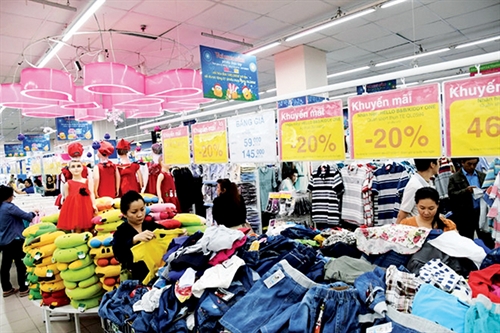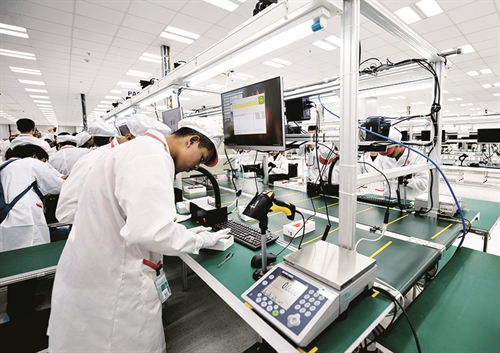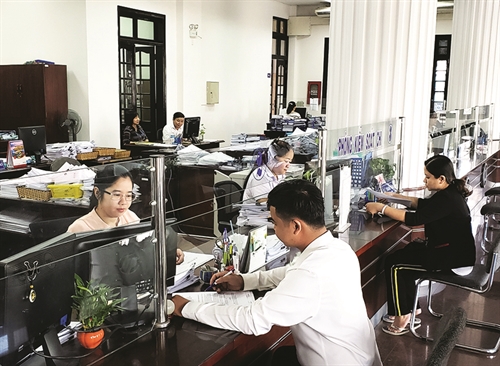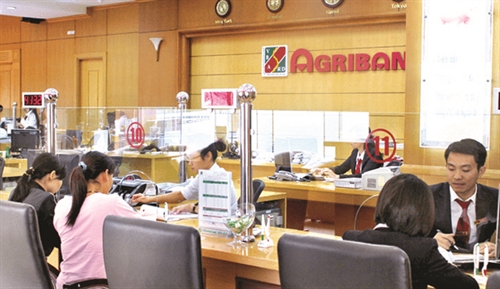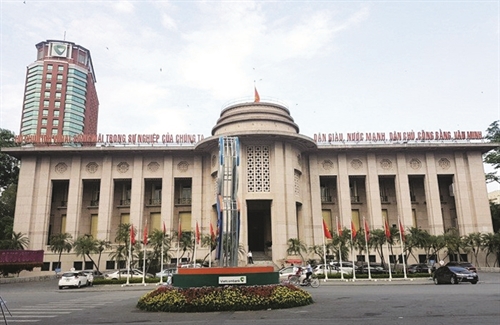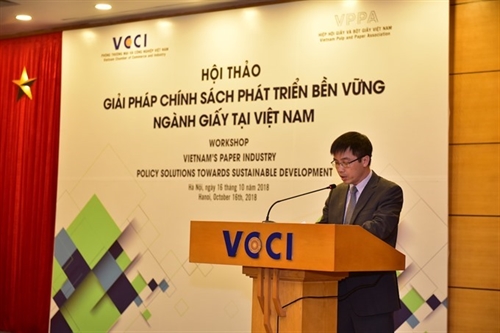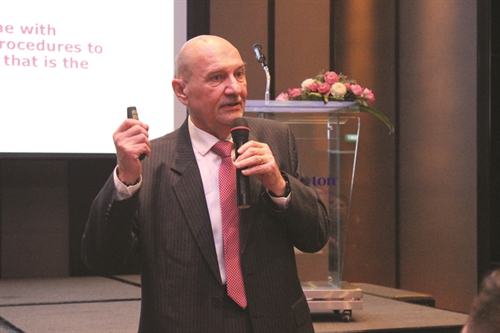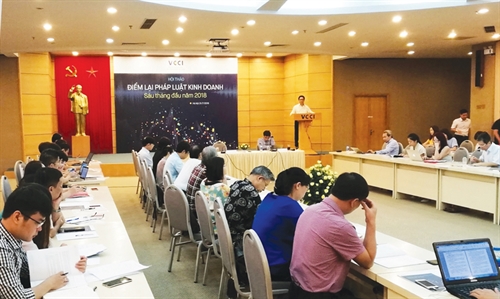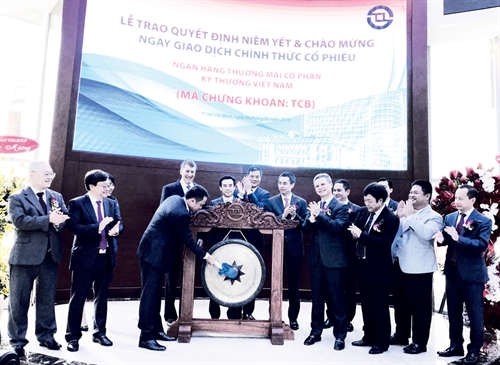The green light for establishment of foreign-invested vocational education institutions in Vietnam was switched on under the 2014 Law on Vocational Education (the Law). However, more than four years after the Law came into force, foreign investment in vocational education remains difficult due to lack of regulations specifying conditions on establishment of foreign-invested vocational training schools in Vietnam.
To remove the bottleneck, the Government in February issued Decree 15 detailing a number of articles of and guiding measures for implementing the Law.
Speaking with Vietnam Investment Review newspaper, Mac Van Tien, Director of the Ministry of Labor, Invalids and Social Affairs’ National Institute for Vocational Education and Training, said there are currently around 300 foreign-funded vocational education and training institutions in Vietnam with foreign-language and informatics training centers accounting for the majority and just a few vocational training schools.
Before Decree 15 is issued, Decree 86 of 2018 is the only document outlining regulations on foreign-invested education institutions but it mainly focuses on preschool and higher education. Meanwhile, Decree 15 specifies the order and procedures for opening foreign-invested vocational training schools.
Under the Decree, which took effect on March 20, the time limit for competent authorities to perform procedures and grant a license for establishment of a foreign-invested vocational education institution is 15 days. For invalid dossiers, licensing agencies will, within three days after receiving them, notify investors for the latter to modify or supplement the dossiers.
“Difficulties of foreign investors will be resolved quickly,” Tien affirmed.
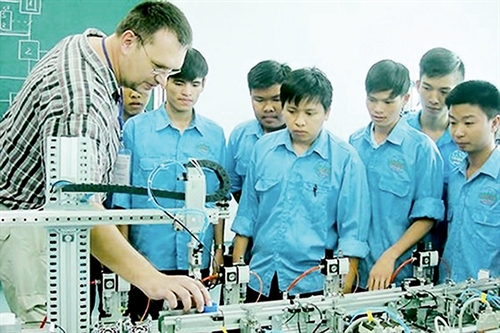 |
| A practice lesson with a foreign teacher at Lilama 2 Vocational College__Photo: Internet |
Conditions for establishment of foreign-invested vocational schools
The Decree specifies conditions for setting up a foreign-invested vocational education institution in the country.
Firstly, the investor’s scheme must be in line with the master plan on Vietnam’s network of vocational education institutions.
Secondly, the investor must obtain a land area of at least 0.1 hectare, if wishing to set up a vocational education center; 1 hectare or 2 hectares, for a vocational intermediate school in or outside urban areas, respectively; or 2 or 4 hectares, for a vocational college in or outside urban areas, respectively.
Thirdly, the investor must possess an investment capital amount of at least VND 5 billion (USD 217,000), for a vocational education center, VND 50 billion (USD 2.17 million), for a vocational intermediate school, or VND 100 billion (USD 4.34 million), for a vocational college.
Fourthly, projected training curricula must meet the requirements prescribed in Article 34.1 of the Law , and neither have a content that might threaten national defense, public security or public interests nor propagate religious ideology, distort history or cause adverse impacts on Vietnam’s culture, morals and customs.
Lastly, the investor must work out a specific plan on the organizational structure, physical foundations, training programs, and lecturing and administering staff in conformity with Decree 15 and Decree 143 of 2016 on conditions for investment and operation in the vocational education sector.
In addition, if the project is subject to investment registration under the investment law, the investor must obtain an investment registration certificate before applying for a license to establish a vocational education institution.
The Decree also specifies conditions for establishment of a branch of a foreign-invested vocational intermediate school or college. Accordingly, the investor must sign an in-principle contract or agreement on hiring of infrastructure and facilities for at least five years and have an investment capital at least equal to 25 percent of that required for establishment of the vocational education institution.
Foreign-invested vocational education institutions may use Vietnamese or foreign training programs according to regulations.
The maximum operation duration of a foreign-invested vocational education institution is 50 years, counting from the date of issuance of its establishment license. Exceptions will be decided by the Prime Minister on a case-by-case basis.
According to Tien, Vietnam welcomes foreign investors but they will be selected carefully. “Investors need to meet strict conditions on training programs, training facilities, the trainer-trainee ratio, and advanced training technologies tested by host countries,” he said.
Joint training in vocational education
According to the Decree, joint training programs with foreign partners may be conducted wholly in Vietnam or partly in Vietnam and partly overseas.
For joint training programs which are conducted wholly in Vietnam, the two parties have four choices: (i) to conduct training using programs jointly formulated by themselves for grant of Vietnamese diplomas or certificates; (ii) to use training programs transferred from abroad and accredited by international education and training institutions and grant Vietnamese diplomas or certificates; (iii) to apply foreign programs or programs jointly formulated by themselves and accredited by international education and training institutions and grant foreign diplomas or certificates; and (iv) to provide training under programs transferred from abroad and accredited by international education and training institutions and grant foreign diplomas or certificates.
Meanwhile, joint training programs which are implemented partly in Vietnam and partly overseas may take any of the following three forms: (i) using foreign programs accredited by international education and training institutions and granting Vietnamese diplomas or certificates; (ii) applying foreign programs accredited by international education and training institutions and granting foreign diplomas or certificates; and (iii) undertaking foreign programs or programs jointly designed by the two parties and accredited by international education and training institutions and granting both Vietnamese and foreign diplomas or certificates.
Joint training programs may be conducted at all degrees and in all disciplines of vocational education, except those in the fields of politics, national defense, public security, and religious ideology.
Enrolment of trainees to joint training programs must comply with Vietnam’s law, in case of granting Vietnamese diplomas or certificates, or foreign laws, in case of granting foreign diplomas or certificates. Particularly for programs under which both Vietnamese and foreign diplomas or certificates will be granted, enrolment of trainees must adhere to both Vietnamese and foreign laws.
Joint training programs may be taught in Vietnamese or foreign languages, with or without interpreters. However, trainees who follow joint programs for grant of foreign diplomas or certificates must at least reach the outcome standard at level 3 of Vietnam’s six-level foreign-language proficiency framework or equivalent.
The Decree also specifies conditions on physical foundations and lecturing and administering staff of institutions conducting joint training, such as requirements on labs, practice workshops and trial production facilities.- (VLLF)
